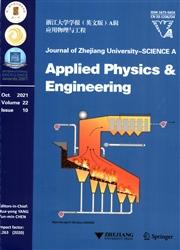新概念气动机翼高速列车轮轨黏附性能数值研究
IF 3.9
3区 工程技术
Q1 ENGINEERING, MULTIDISCIPLINARY
引用次数: 0
摘要
轮轨黏附是一个复杂的轮轨滚动接触摩擦学问题,关系到高速列车的运行安全。近年来,人们提出了一种新的高速列车设计理念,期望通过在车顶安装气动机翼(aero-wings)来减少等效重量和总能耗,但其缺点是轮轨黏附性能下降。本文利用商业软件SIMPACK,在考虑列车实际气动特性的基础上,建立了预设计气动翼高速列车的综合多体动力学模型。利用有效附着力和附着余量对轮轨黏附性能进行了评价。讨论了气动翼升力、列车速度和接触条件对轮轨附着水平的影响。结果表明,气动载荷和制动力矩共同作用下的载荷传递是导致四轮对黏附状态不一致的主要原因。气动翼升力和列车速度对轮轨黏附性能的影响是耦合的;在所有接触条件下,机动车和挂车的有效附着量均与气动翼升力和列车速度呈负相关,而附着裕度随列车速度的变化规律在不同接触条件下存在差异。当轮轨界面被水、油等“第三体介质”污染时,轮轨黏附性能显著降低,轮对容易达到黏附饱和而发生滑动。轨道不平顺性对粘着性能影响不大,为节省计算时间可以忽略。研究结果对减少车轮空转或滑动现象,保证高速动翼列车的安全运行具有积极意义。本文章由计算机程序翻译,如有差异,请以英文原文为准。
Numerical study of wheel–rail adhesion performance of new-concept high-speed trains with aerodynamic wings
Wheel–rail adhesion is a complex tribological problem of wheel–rail rolling contact and is closely related to the operational safety of high-speed trains. A new design concept of high-speed trains was recently proposed with an expectation of a reduction of equivalent weight and total energy consumption by installing aerodynamic wings (aero-wings) on the roof, but it was accompanied by the disadvantage of deteriorating wheel–rail adhesion performance. In this study, a comprehensive multi-body dynamics (MBD) model of the high-speed train with predesigned aero-wings is established using the commercial software SIMPACK, in which the real aerodynamic characteristics of the train are taken into account. The available adhesion and adhesion margin are employed to evaluate the wheel–rail adhesion performance. The influences of aero-wing lift, train speed, and contact conditions on the wheel–rail adhesion level are discussed. The results show that the load transfer caused by the action of aerodynamic load and braking torque was the main reason for the inconsistent adhesion condition of four wheelsets. The influences of aero-wing lift and train speed on the wheel–rail adhesion performance are coupled; the available adhesion of both motor car and trailer is negatively correlated with aero-wing lift and train speed under all contact conditions, while the variation law of adhesion margin with train speed shows differences under different contact conditions. When the wheel–rail interface was polluted by a ‘third-body medium’ such as water and oil, the wheel–rail adhesion performance was dramatically reduced and the wheelset tended to reach adhesion saturation and slide. However, track irregularity had little effect on the adhesion performance and could be ignored to save calculation time. These results are of positive significance for reducing the wheel idling or sliding phenomenon and to ensure the safe operation of high-speed trains with aero-wings.
求助全文
通过发布文献求助,成功后即可免费获取论文全文。
去求助
来源期刊

Journal of Zhejiang University-SCIENCE A
工程技术-工程:综合
CiteScore
5.60
自引率
12.50%
发文量
2964
审稿时长
2.9 months
期刊介绍:
Journal of Zhejiang University SCIENCE A covers research in Applied Physics, Mechanical and Civil Engineering, Environmental Science and Energy, Materials Science and Chemical Engineering, etc.
 求助内容:
求助内容: 应助结果提醒方式:
应助结果提醒方式:


